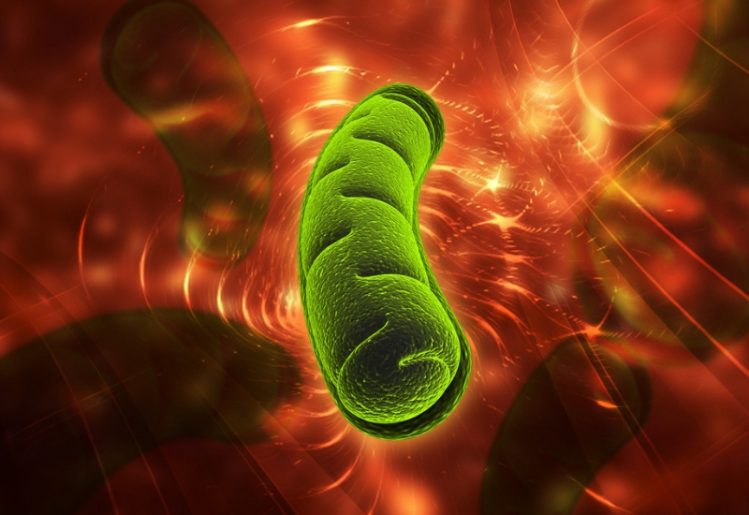Mental health issues are some of the least-understood medical conditions. Unlike many physical health issues that present with a clear path for treatment, individuals who suffer from mental health concerns are often not able to find ways to alleviate their symptoms. One promising field of research based on the newly discovered link between mitochondria and anxiety examines how the functioning of the body’s mitochondria may affect a variety of mental health concerns.
What Are Mitochondria and Why Are They Important
 Accounting for approximately 20 percent of an individual’s body weight, mitochondria are present in every cell except for red blood cells. As a cell’s source of power, mitochondria play a critical part in the overall function of the body and mind. Because they deliver power, cells that require energy house more mitochondria.
Accounting for approximately 20 percent of an individual’s body weight, mitochondria are present in every cell except for red blood cells. As a cell’s source of power, mitochondria play a critical part in the overall function of the body and mind. Because they deliver power, cells that require energy house more mitochondria.
Poor mitochondrial function can lead to a host of physical and mental health issues. Understanding the connection between the health of the mitochondria and your overall health can help you to take steps to protect these cellular powerhouses. While most people develop problems with mitochondria as they age, there is a small percentage of people who are born with mitochondrial DNA health issues.
Understanding the Relationship Between Mitochondria and Anxiety
Scientists and doctors have established a connection between the health of a body’s mitochondria and mental health. Because of this connection, targeting mitochondrial function may be helpful in treating stress-related disorders and other mental health issues. It is important to note that there is not one single way to treat mental health disorders. Using a multi-faceted approach that includes examining the effect of mitochondrial function will yield the best results.
While mitochondria problems may be the culprit behind a variety of mental health issues such as depression and mood disorders, they are also often the driving force of anxiety. A diagnosis of excessive anxiety covers a wide array of conditions that present as irrational worry, fear and panic. In the U.S., it is estimated that over 18 percent of the population have an anxiety disorder.
Both animal and human studies have identified a link between mitochondrial function and the development of anxiety. Animal studies have specifically demonstrated that mitochondria therapy may be instrumental in protecting the mitochondria and reducing anxiety in mice.
Individuals who suffer from high anxiety often present with issues of energy metabolism and oxidative stress alterations. What scientists do definitively know is that this is a bidirectional link. This means that oxidative stress alterations and energy metabolism are observed with individuals with high anxiety. Likewise, changes in the function of the mitochondria may also be a cause of the heightened levels of anxiety. Because of this bidirectional link, many physicians believe that the pharmacological manipulation of mitochondria may be a successful treatment to help those that suffer from excessive anxiety.
How to Test Mitochondrial Function
Despite modern advances in medicine, there is no set way to test mitochondrial function. Part of the problem is that these types of disorders are often masked by other non-specific symptoms of additional health issues. Many physicians discover the mitochondrial issue by checking iron levels, insulin function, various hormonal production and more. For the most definitive diagnosis, healthcare providers look to muscle biopsies for guidance. An adrenal stress test can also provide clues about the function of the mitochondria.
One of the reasons why this issue is challenging to diagnose is because there are so many problems that affect mitochondria function. Precursors of this issue include hyperglycemia, inflammation, iron toxicity and excessive stress. These health problems often lead to increased levels of mitochondrial DNA damage, affecting the ability of the mitochondria to sustain energy production within the cells.
How to Protect the Cells’ Mitochondria
 There are a number of steps that you can take to heal mitochondria or prevent future issues. Like most health issues, getting enough sleep, eating well, engaging in regular exercise and being diligent about reducing stressors in your life will all help to heal these damaged mitochondria.
There are a number of steps that you can take to heal mitochondria or prevent future issues. Like most health issues, getting enough sleep, eating well, engaging in regular exercise and being diligent about reducing stressors in your life will all help to heal these damaged mitochondria.
In addition, there are substances you can take to protect the cells’ mitochondria while nourishing them at the same time. These substances include NADH, resveratrol and L-arginine.
While there is still more to understand about the function of mitochondria, it is clear that these pockets of cellular power may hold a key in helping physicians to treat a wide array of mental health issues, including anxiety and depression. As more becomes known about the function of mitochondria, the medical profession is hopeful that this knowledge can be harnessed to deliver effective results to those who struggle with mental health issues.


